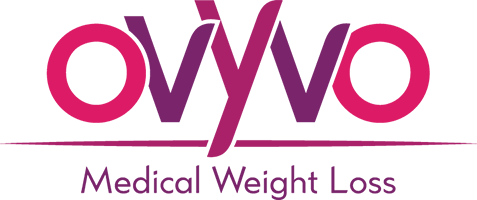Sodium is an essential nutrient that our bodies need to maintain proper fluid balance, support nerve and muscle function, and regulate blood pressure. However, consuming too much sodium can have serious health consequences. But how much sodium is too much? And what kind of changes can you make to decrease your sodium intake? Let’s find out…
The Health Risks of High Sodium
First, let’s talk about the health risks associated with excessive sodium intake…
1. Fluid Retention: Consuming too much sodium can cause the body to retain fluid, leading to swelling in the ankles, feet, and legs. This can be especially dangerous for people with heart or kidney problems, as it can exacerbate their conditions.
2. High Blood Pressure: Water retention can increase the volume of fluid in the bloodstream. This can lead to high blood pressure, or hypertension, which is a major risk factor for heart disease and stroke.
3. Kidney Damage: Excess sodium intake can also damage the kidneys, which play a vital role in regulating sodium balance in the body. When the kidneys are not functioning properly, they may not be able to filter out excess sodium from the blood, leading to a buildup of fluid and a rise in blood pressure.
4. Osteoporosis: Eating a diet high in sodium can cause the body to excrete more calcium in the urine, which can lead to a loss of bone density over time. This can increase the risk of osteoporosis, a condition in which bones become weak and brittle, making them more susceptible to fractures.
5. Stomach Cancer: High sodium intake has been linked to an increased risk of stomach cancer. This increase is due to the chronic inflammation that occurs as a result of salt damaging the lining of the stomach.
The Right Amount of Sodium
So, how much sodium is too much? The average American consumes about 3,400 mg of sodium per day. However, The American Heart Association recommends consuming no more than 2,300 milligrams of sodium per day. That’s just shy of one teaspoon of salt. But ideally, they report that most adults should consume less than 1,500 milligrams per day.
Reducing Sodium in Your Diet
If you are concerned about your sodium intake (and most of us should be), there are a few things you can do to reduce it:
- Read food labels carefully and choose foods that are low in sodium.
- Avoid processed foods, such as canned soup, frozen dinners, and fast food.
- Cook more meals at home so you can control and reduce the amount of sodium that goes into your food.
- When you eat out, ask for your food without salt.
- Rinse canned vegetables and fruits before eating them.
- Trim the fat from meat before cooking it.
- Use herbs and spices to flavor your food instead of salt (see below).
- Avoid salty condiments like soy sauce and Worcestershire sauce.
- Avoid or limit salty snacks, such as potato chips, pretzels, and crackers.
- Drink plenty of water to help flush out excess sodium.
Swap The Salt
Without question, most of us just automatically reach for the saltshaker when we want to give our food a little more flavor. But you can add plenty of pizzazz to your meals without it. So, put the shaker down, and reach for one of these low- or no-sodium alternatives instead:
- Black pepper
- Garlic powder
- Onion powder
- Chili powder
- Paprika
- Cumin
- Curry powder
- Thyme
- Rosemary
- Oregano
- Basil
- Lemon juice
- Lime juice
- Apple cider vinegar
- Balsamic vinegar
- White vinegar
- Red wine vinegar
- Rice vinegar
- Coconut aminos
- Nutritional yeast
- Umami powder
- Kelp flakes
- Bonito flakes
- No-salt seasoning blends
As you begin to cut sodium from you diet, remember that you don’t have to go cold-turkey. Start by using less salt than you normally would. You may be surprised at how much flavor your food still has without it. When using alternative seasonings, add them gradually, until you reach the desired flavor. Experiment with different combinations of seasonings to find what you like best. Don’t be afraid to get creative! When it comes to adding flavor to your food without salt, the possibilities are endless.
Final Thoughts
Sodium is an essential nutrient. But the fact is, most of us are consuming far too much of it. The health implications are clear. Excess sodium can increase your risk for a range of issues, including hypertension, heart disease, stroke, kidney damage, and osteoporosis. By taking steps to reduce your sodium intake, you can protect your health and improve your overall wellbeing.
